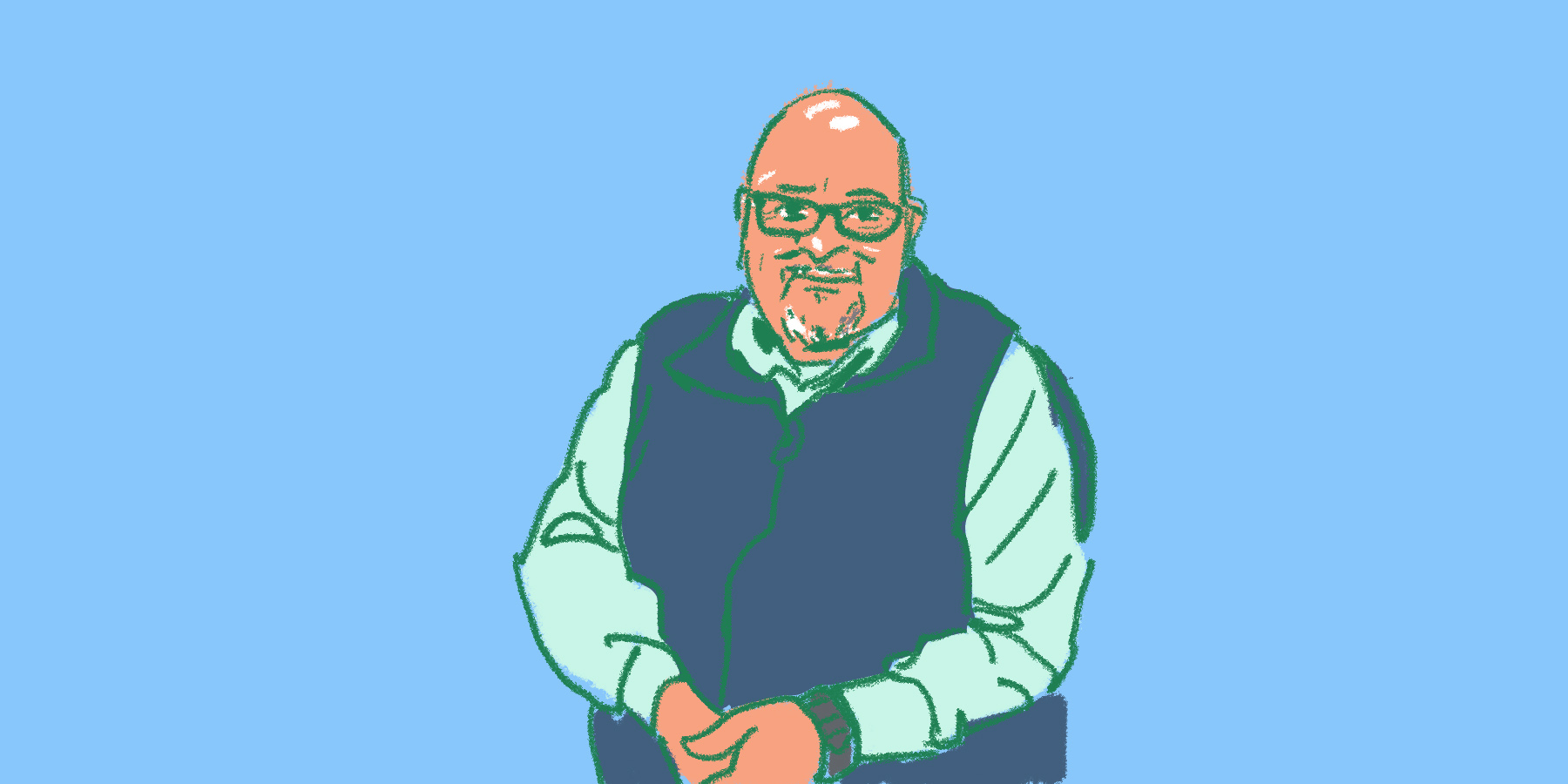Jaime di Paulo is the executive director of the Little Village Chamber of Commerce. Originally from Guadalajara, Mexico, di Paulo was recruited to come work with the thriving business community here. He sat down with 90 Days, 90 Voices to talk about how President Trump’s election has impacted Little Village, an oft-overlooked economic powerhouse.
If you think of an immigrant in America, you think of a Mexican. Today everything we hear about immigrants is that they are bad people and undocumented. Trump says he wants people from Norway. Well, if you are doing well and you are well educated, why would you leave your country and come here, man? We all leave for a reason and for most of us it’s because we want a better life. It’s simple.
At the same time, there’s not an immigrant who doesn’t want to go home to wherever they came from. I moved to the United States for high school and college, then afterwards I went back to Mexico. But then Mexico no longer felt like home. I lasted just five years before I moved to the United States again. As an immigrant, you think you can fulfill your dreams here. So you come to a place like Chicago, start your business, and build up the local economy.
Just look at Little Village—we contribute $900 million each year into the economy of Chicago. I’d say that ninety-nine percent of us came to the United States with nothing, and now we employ about 5,000 people in our own neighborhood.
It is sad that I have to justify someone’s existence in this country by their monetary contribution, yet here we are. Try it. Mention how much the people of Little Village contribute to the city of Chicago and see how people change. All of a sudden the tone flips. “Oh, I didn’t know that. Let’s talk about that.” That’s what I do for my job and it works. After hearing that dollar amount, people say, “Come, let’s have lunch.” Somehow you have to take the human aspect and convert it to dollars for some to understand that we aren’t asking for anything, and we contribute greatly to this economy.
Mexican immigrants like to shop local here in Chicago. Shoppers go to the grocery shop and then another store for fruits and vegetables, then meat, and another for baked goods. They like to distribute their wealth into four or five stores. Little Village businesses sustain themselves during the week with local customers, but on the weekend, that’s really the icing on the cake. Families from the neighborhood, suburbs, and surrounding states walk up and down 26th Street for shopping, and the restaurants are packed.
Little Village is like a market of nostalgia: Mexicans come here to feel like they are back home in Mexico. They can find certain products that they can’t find anywhere else while speaking their own language.
Today, the economy in Little Village seems like it is back to normal, but it was doing bad. At the beginning of last year with the new administration it hit a low. Some businesses were reporting fifty percent losses in sales and many ended up closing because the president decided to instill fear in our community.
Honestly, I blame the media, too, because they exaggerated stories and started reporting the potential for an increase in raids and rumors of parents getting arrested at schools. Parents were asking me if they could leave their children with their neighbors. I was like, really? Come on man, you don’t leave your children with your neighbors. But that’s how strong the effect of this rhetoric was. It was a big trauma for the community.
But we fought back and created the Little Village Defends Itself network to raise awareness about immigrant rights. There was even a phone tree in case someone got picked up so we could rally to help out. It was a major thing.
Little Village had to come forward as a community to say, hey this is really impacting us and we need to find a way to work through this. We lost a lot of businesses in 2017. The older, established stores survived, but the new stores struggled and some closed. We are still seeing vacancies, but businesses are coming back and they need to. We are in reality very important to the city and, most importantly, to our own community.

